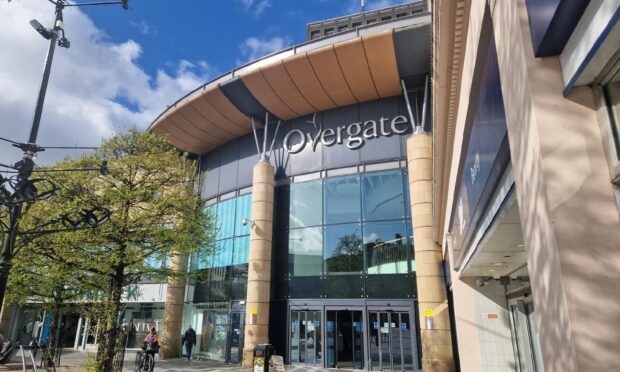An artificial intelligence company created a windfall worth more than £40 million for Dundee University.
Founded in Dundee, Exscientia was acquired by US firm Recursion in an all-share deal worth £500 million last month.
As a university spin-out that was founded on post-doctoral research, Dundee University held a significant stake in the business due to the support it provided in its early years.
The company was founded by Dr Andrew Hopkins in 2012 and uses AI to rapidly speed up drug discovery.
It quickly signed multi-million-pound deals with several drug firms and opened an Oxford office in 2017 which now acts as its headquarters. It retains a Dundee base at City Quay and also has offices in America.
When the company floated in October 2021 its shares soared, valuing the company at £2.5 billion.
Dundee University made millions from artificial intelligence firm
After the initial excitement of the company trading on the Nasdaq, Exscientia’s share price quickly started to fall. From a peak of around $27 a share in 2021, it was worth less than $5 when it was acquired.
The university, which is currently facing a £30m budget black hole, chose a good time to sell its shares.
A spokesperson confirmed that the vast majority of shares were sold in 2021, netting a windfall of around £40m.
The university said: “The money was earmarked for strategic investment. Among the things it has helped deliver is the new Life Sciences Innovation Hub, part of the Tay Cities Deal.”
Shareholding in new business
But the university did not sell all of its stake, retaining 234,600 Exscientia shares.
The takeover saw Exscientia shares converted into a lower number of Recursion stock.
The university’s 181,322 Recursion shares are worth just under £1m.
The new £40m university innovation hub, which is due to open early next year, is an attempt to keep growing life sciences firms in Dundee.
Exscientia requiring more lab space was one of the reasons it moved to Oxford.
The facility will provide world-class laboratory and office space to spin-outs from the School of Life Sciences.
It will also have space for companies looking to partner with the university to use its facilities as they grow and scale.
It is set to be the centrepiece of the Tay Cities Biomedical Cluster project, to which the Scottish Government has invested £25m as part of the Tay Cities Region Deal.
This wider project is predicted to create around 800 new jobs and bring a financial benefit of more than £190m to the region by 2053.
Financial troubles
The hope is that Dundee University will again be repaid with a lucrative stake in a business it helps to create and grow.
On Thursday night it was named outstanding entrepreneurial university of the year at Times Higher Education Awards.
However, it is facing significant financial headwinds, with Principal Professor Iain Gillespie telling staff that job losses are “inevitable”.
The Exscientia takeover followed chief executive Professor Andrew Hopkins being sacked from the company he created in February due to “inappropriate” relationships with two members of staff.













Conversation